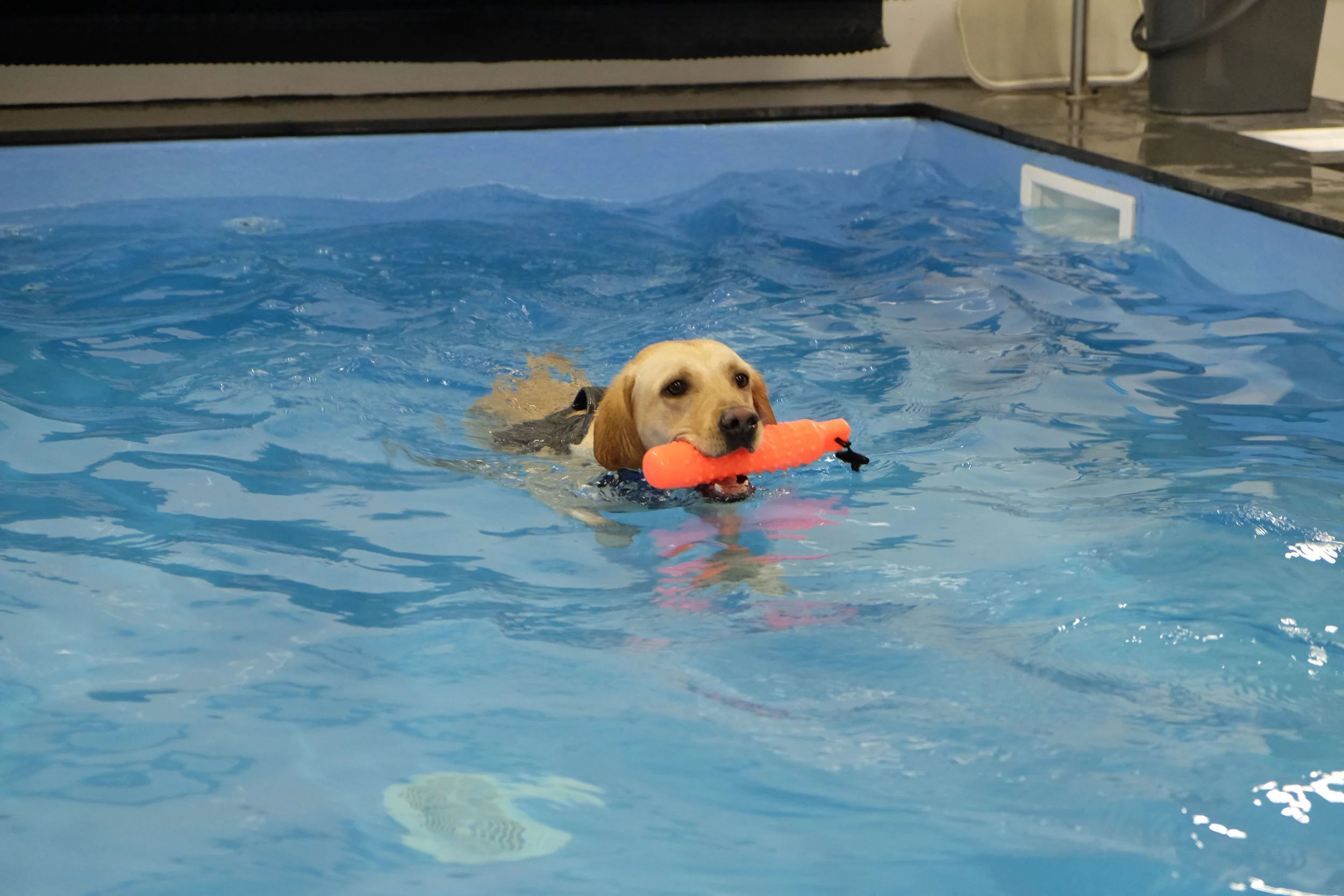Did you know that Golden Retrievers are right up there with Labrador Retrievers as the breeds most predisposed to weight gain and torn cruciate ligaments, which is a ligament keeping the knee in place. Being as they are completely adorable as well, it is often hard for their owners to resist over-feeding them. The combination of the two, obesity and knees predisposed to injury, often work together in the exact way a pet parent wouldn’t want.
Obviously there are a number of ways to improve your dog’s diet and weight management, the primary ones being food selection and intake as well as exercise. Your local Wags to Wiskers Pet Supplies stores in Ann Arbor (2270 W. Stadium Blvd, Ann Arbor, MI, 48103) or Chelsea (1192 S. Main St, Chelsea) can help you out in both of those areas. There are also usually lengthier, non-surgical means of healing injured cruciate ligaments in canines, but it’s tough scenario - surgery is expensive, but it’s gotta be close to impossible to explain to a dog that he or she needs some R&R for 6 months. Instead, our team at Wags to Wiskers wanted to use this week’s PUPDATE as an opportunity to share some benefits and knowledge about hydrotherapy that some of our customers may not have known.
So what’s hydrotherapy?
In Greek, the word “hydrotherapy” means “water healing.” Dogs can benefit from water therapy in the same way humans do. Hydrotherapy uses the properties of water — buoyancy, viscosity, resistance, and hydrostatic pressure — to enable a dog (or human) to move her joints. Water makes the body buoyant, so when submerged, the weight of the body is supported. This means the dog is not fighting gravity. The buoyancy of water reduces stress on the joints and this creates a much safer environment for recovery after surgery.
When is hydrotherapy a good idea for my dog?
Hydrotherapy can be impactful for your dog in a number of beneficial ways. You should consider hydrotherapy if your dog is….
Recovering from an injury
Suffering from degenerative joint diseas
Paralyzed, has amputated limbs, or fractured bones
Exhibiting signs of hip dysplasia and neurological disorders.
Suffering from arthritis - the warm water helps reduce joint swelling
Hydrotherapy can be used not just as a post-operative therapy, but as a means for canine athletes to improve their fitness and conditioning levels, as well as for overweight dogs to combat obesity. The buoyancy puts less strain on joints and bones while the viscosity and resistance to movement strengthens muscles and burns more calories than a walk outdoors.
What types of hydrotherapy are available?
This often depends on where your dog is receiving treatment. For the sake of our southeast Michigan pet parents, we’d like to highlight the Animal Rehabilitation Facility (ARF) nearby in Dexter, MI. The ARF has a two underwater treadmills and a swimming pool, along with licensed professionals that would be more than happy to oversee your pup’s return to glory. By varying the height of the water and the speed of the treadmill, the treadmill can be tailored to uniquely fit every dog’s specific condition, fitness level, and treatment plan.
The dog pool is another good option for postoperative recovery, low-impact workouts, and even as a training tool. At the ARF, both the pool and the treadmill are set at a warm 86 degrees to ensure that your dog is happy and comfortable.
Prices for these services will also vary by location, treatment plan, length of time, and other factors.
Benefits of hydrotherapy for dogs
Simultaneously, water therapy stimulates, strengthens and relaxes the body. Water therapy may also improve balance, coordination, and increase overall energy levels, all while reducing pain and stress. Water increases circulation, ideal for enhancing the skin and coat. It can also increase lymph drainage, rid the body of toxins, enhance the immune system, improve digestion, and manage weight.
This isn’t something you should do in your backyard
This is definitely not hydrotherapy 😅
There is a massive difference between going to a hydrotherapy clinic with a trained veterinary and medical staff and taking your dog to swim around in the Huron River or helping them swim around your pool this summer.
Without proper supervision in the open water, a dog recovering from surgery may not have the muscle strength needed to swim. The temperature of the water in a lake or pond is unregulated. Also, bacteria from the lake may cause an infection in a recent incision. Finally, if your dog is not properly stabilized in the water he may be putting pressure on the area in recovery and creates the risk of doing more harm than good.
We think it’s best to speak with your veterinarian and even get a consultation with the experts at the ARF in Dexter before deciding what’s best for you and your dog. What we can do at Wags to Wiskers Pet Supplies is help your dog pick out a water toy that they’ll love, or get them on a diet that supplements any hydrotherapy decisions you might make. Come talk to us about it!




